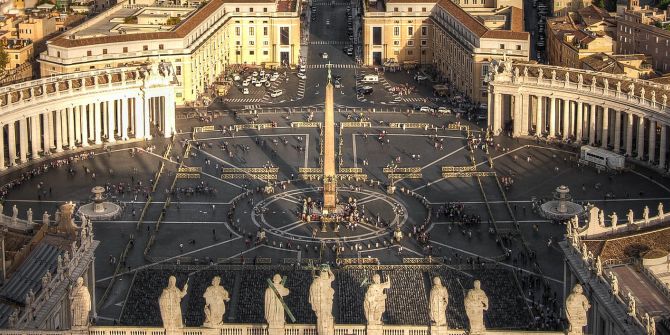Osama bin Laden, Ayatollah Ruhollah Khomeini, and the Grand Imam of Al-Azhar have all issued famous fatwas. So how should we think about different interpretations of morality? In this article, the first of two parts, Mohamed Arafa analyses different sources of moral authority in Islam, illustrating the debate with examples from scholars, historians, and jurists over what the Qur’anic texts mean for Muslim women’s clothing in Iran and Saudi Arabia.

What makes someone qualified to rule? From the Islamic perspective, that is, for someone to become a mujāthid, a person accepted as an authority in Islamic law (for example, knowledge of the Shārīe‘ā essential objectives ‘religion, life, mind, posterity, and property’, and Sunnah – the reliability of its narrators, scholar’s consensus, and the methodology of analogical reasoning). Only by meeting these – and other requirements – is one qualified to issue a fātwā, or applying the (religious) ruling of major Islamic schools of jurisprudential thoughts.
Illegitimate fātwā(s): Undoubtedly, the Western media is possibly more familiar with “illegitimate fātwās,” (for example, Osama bin Laden’s public call for a global jīhād against the West). Bin Laden’s tendency towards violence does not align with the Islamic teachings, and it is unlikely bin Laden’s knowledge of Islam was sufficient for him to issue fātwās. And yet, he succeeded to gain a robust enough following for alQaeda members to heed his visions. This is perplexing: How can it be that there are strict standards to meet before one has the authority to grant a fātwā, and yet the fātwās of someone like bin Laden can still be recognised?
One possible solution might be that Shārīe‘ā law is devoid of a tool by which jurists can come to an ījm‘ā (consensus) on who in real-time is or is not competent to issue fātwās. Scholars should condemn ignorant and morally corrupt leaders when dictatorial regimes take control in Muslim countries or when terrorist organisations are on the rise. Without spreading this message to the masses, some may believe that whoever holds power or has the loudest voice has the authority to issue a fātwā, so empowering those like bin Laden to be respected by a small but sizable number of fanatics.
This disconnect between who should be allowed to rule and who individuals perceive are competent extends even to the United States. Just as some in the Arab Muslim world might have disregarded bin Laden’s lack of Islamic knowledge and his misalignment with the Shārīe‘ā essentials, so too are momentous numbers of Americans ignorant of their leaders’ lack of respect for American governmental system and basic human decency. Furthermore, although American presidents do not issue fātwās, they can issue executive orders – most do not reach the scale of violence instigated by bin Laden’s fātwās, but there are examples in American history where they have caused significant damage. Consider, for example, President Trump’s “Muslim ban” or the mass incarceration of Japanese Americans by President Roosevelt. Without a mechanism by which to prevent the ignorant from seizing power in both the Islamic and American legal systems, it is likely that “illegitimate fātwās”, “executive orders”, will continue to be issued by those who should not have the power to do so.
On the intersection of Islam and the law, it should be noted that most legal systems in Middle Eastern countries refer to “Shārīe‘ā,” the path God provided Muslims on both spiritual and worldly matters. Across the region, however, broadly different interpretations of Shārīe‘ā exist. For instance, even though Islamic law does not explicitly require a punishment for those who violate blasphemy laws some inflict capital punishment onto violators (Iran, Saudi Arabia), however, other Muslim-majority nations only imprison or fine violators of blasphemy laws (Egypt), and others still (Nigeria) do not even have blasphemy laws.
Morality in Islam: Delegitimising the morality police
Many Muslims do not distinguish moral duty from religious duty. The blurred lines between moral and religious obligation are possibly rooted in the concepts of “hālāl” (permitted) and “hārām” (forbidden). Those who live their lives according only to what is considered halal are hence committed not only to a sacred way of life, but also a moral life. Generally, in Islam, morality is not fixed and varies across cultures depending on local customs, traditions, religions, and history. Some Muslims’ incapability to distinguish ethical from religious duty is a dangerous weapon for morality police because it efficiently permits the state to punish persons who violate the state’s interpretations of religious obligations, and hence moral commitments.
Commanding the right and forbidding the wrong
For instance, the duty to command the right and prohibit the wrong as it first appears in the Qur’an (verses 3:104 & 9:71) “Let there be one community of you, calling to good, and commanding right and forbidding wrong; those are the prosperous.” For example, Article 8 of the Iranian Constitution, which grants power to Iran’s morality police, references this verse as a basis for the “universal and reciprocal duty that must be fulfilled by the people with respect to one another, by the government with respect to the people, and by the people with respect to the government.” Early Islamic scholars (e.g., Abu āl‘Alīyā & Muqātīl ībn Sulāymān) interpreted the verse that “commanding right” refers to believing in God and Prophet Mohammad, and “forbidding wrong” refers to banning polytheism. Indeed, an early political interpretation of “commanding the right and forbidding the wrong” held that it was not the state’s responsibility to regulate the public, but for the public to hold their leaders accountable by launching rebellion in the event of autocracy. In “Forbidding Wrong in Islam: An Introduction”, Michael Cook observes, “it was quite common in the early centuries of Islam for rebels to adopt forbidding wrong as their slogan.” In the19th century (Oman), where 40 men banded together by “selling” themselves to God, donning shrouds, and setting out on a mission to command right and forbid wrong on their own terms rather than on the terms of the Sultān. However, the group disbanded after the Sultān sent them presents which they were quick to accept.
In September 2022, Iran’s Gasht–e Ershad (morality police) arrested and murdered 22-year-old Mahsa Amīnī for inappropriately wearing her hījāb. Across Iran, thousands of protestors vowed to “kill those who killed my sister.” Since the murder, Iran has detained several protesters, flogged, electrically shocked, and raped child detainees. How can it be that a nation like Iran, which claims to have a legal system rooted in Islamic principles, has resorted to murdering young women and raping children to maintain its religious theocracy? Also, does Iran’s morality police have any basis in Islamic law? And if not, how might Iran’s Middle Eastern neighbours, and the global community, keep corrupted interpretations of Shārīe‘ā at bay?
Women’s dress code as a case study
Even if religious policing were necessary in Islam, the extent to which they would be needed to regulate women’s dress, or even have any inherent authority to do so, is questionable. Consider these two Qurā’nīc verses traditionally cited to describe women’s dress code in the Muslim context:
“And say to the believing women that they should lower their gaze and guard their modesty; that they should not display their beauty and ornaments except what (must ordinarily) appear thereof; that they should draw their veils over their bosoms and not display their beauty…And that they should not strike their feet in order to draw attention to their hidden ornaments” [24:31]
“O Prophet! Tell they wives and daughters, and the believing women, that they should cast their outer garments over their persons (when abroad): this is most convenient, that they should be known (as such) and not molested. And God is oft forgiving, most merciful” [33:59].
Some scholars conclude from these verses that the Qur’ān requires Muslim women to wear specific sorts of clothing, however, neither verse is clear on the precise rules on how women should cover their body, and interpretations have evolved over time. Ibn Kāthīr – a 14th century Arab historian – argues that the verses signify that women should cover their whole bodies, except one eye. But, ālTābārī” – a 19th century Muslim historian – argued that the first verse means women’s faces and hands should be exposed. Other jurists, such as Mohammad Asād – a 20th century scholar – argue that human conditions vary over time, and verses are moral rules that can and should change with time, place and the surrounding social environment.
Iran fails to use any of these interpretations. Today, the Iranian Islamic Penal Code does not even define what an “Islamic hījāb” is even though women may be punished for not wearing one. Even if one could concede that morality police did have the authority to command the right and forbid the wrong, given the ambiguity on women’s dress code, the idea that a single interpretation of the dress code may enable the Iranian morality police to punish individuals like Amīnī holds no weight.
In assessing what measures Iran should take regarding its morality police, it is vital to recount how Saudi Arabia addressed its own morality police. Founded in the 1920s, the Saudi morality police were notorious for their cruelty – not unlike the modern Iranian morality police. Until the 1970s, the Saudi government attempted to reform the police by replacing violent zealots with kinder officers. However, over the next four decades, the power of the morality police grew unchecked to the point where they would beat people in the street for failing to pray. Given the reform efforts clearly failed, Crown Prince Mohammed Bin Salman efficiently ended – with minimal powers – the group in 2017. Today, Saudi Arabia’s limited morality police merely reports infractions to the general police and issues fines. If Saudi Arabia, a country notorious for enforcing gender segregation, dress codes, etc., can nearly abolish its morality police, Iran should be capable of the same irrespective of its interpretations of Qurā’nīc texts.
Photo by Max Zindel on Unsplash





